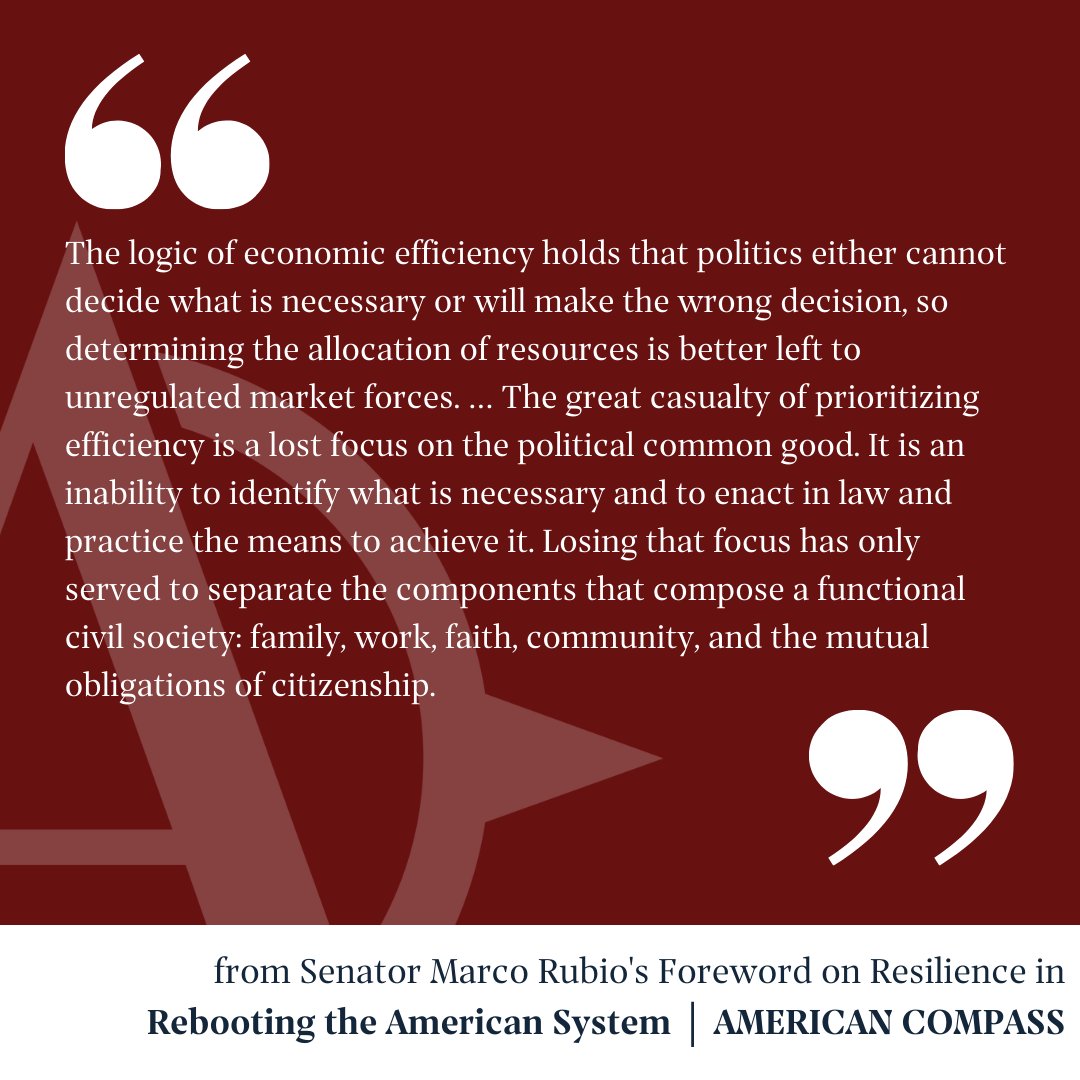
Thread (1/12). How have Wall Street's fortunes diverged so radically from Main Street's in recent decades? I think a large part of the explanation comes down to our misunderstanding of the word "investment." Most "investors" are doing nothing of the sort. americancompass.org/essays/specula…
2/ My new research brief @AmerCompass classifies publicly traded companies as "Sustainers" or "Eroders" depending on whether they are investing faster than they use up their past investments. Our economy has undergone a transformation. americancompass.org/essays/the-cor…
3/ Half a century ago, the vast majority of companies were Sustainers -- actively investing to grow their capital stock. Now Eroders predominate, returning record amounts of cash to shareholders even as they fail to make the investments they need. 

4/ The result is an enormous outflow of resources from the real economy back to the financial markets -- an excess of more than $3 trillion during 2009-17 alone. The claim is that this is good, because the recipients can turn around and invest in something better. Do they? 

5/ This is why the distinction between actual-investment and non-investment is so important. If Intel pays out $1 billion instead of spending it on new equipment, the money lands in financial accounts, and then gets used to buy some other asset. But that's not investment.
6/ If you take your Intel dividend and use it to buy Boeing stock, you haven't invested in Boeing; Boeing gets nothing. You've traded your cash for someone else's stock. What are they going to do with it? A game of hot potato begins: I'm not investing, here, YOU invest...
7/ As the net outflows from publicly traded companies and the declining rate of nationwide investment make clear, the end result is not necessarily that the actual-investment ever happens. This is a crucial question: where does it go? One answer seems to be: Treasury bonds.
8/ When businesses that could make actual-investments give the money back to people and funds who are non-investors, they pass it on to others or can convert it to personal investment or consumption. (Bigger boat!) In the end, a lot seems to get loaned back to the government.
9/ Here's a chart showing cumulative increase in (1) excess outflows from public companies (relative to historical rate), (2) the shortfall in net business investment (relative to historical rate), and (3) the rise in public holdings of treasury debt. Huh. 

10/ Now, obviously, there's no one-to-one cause-and-effect between declining private-sector investment and money parked in Treasuries. The point is "we're moving capital to its best investment use" doesn't have to be true. It has other places to go, and seems to be going there.
11/ Also worth noting, as the research brief explains, there are many ways to categorize companies and plenty of further research to be done, but however you cut it the main takeaway appears to remain the same. americancompass.org/essays/the-cor…
12/ Why do we care? Well there's the stagnant productivity and wages, slowing innovation, and declining int'l competitiveness. Also, when the real economy sends off its cash, you get this: top 10% gained $28T in liquid net worth over past 30 years, bottom 50% is flat to down. 

For a full discussion of the causes and effects of Wall Street's rise and American investment's fall, and some thoughts on what to do about it, take a look at my new essay: We're Just Speculating Here... @AmerCompass americancompass.org/essays/specula…
• • •
Missing some Tweet in this thread? You can try to
force a refresh











